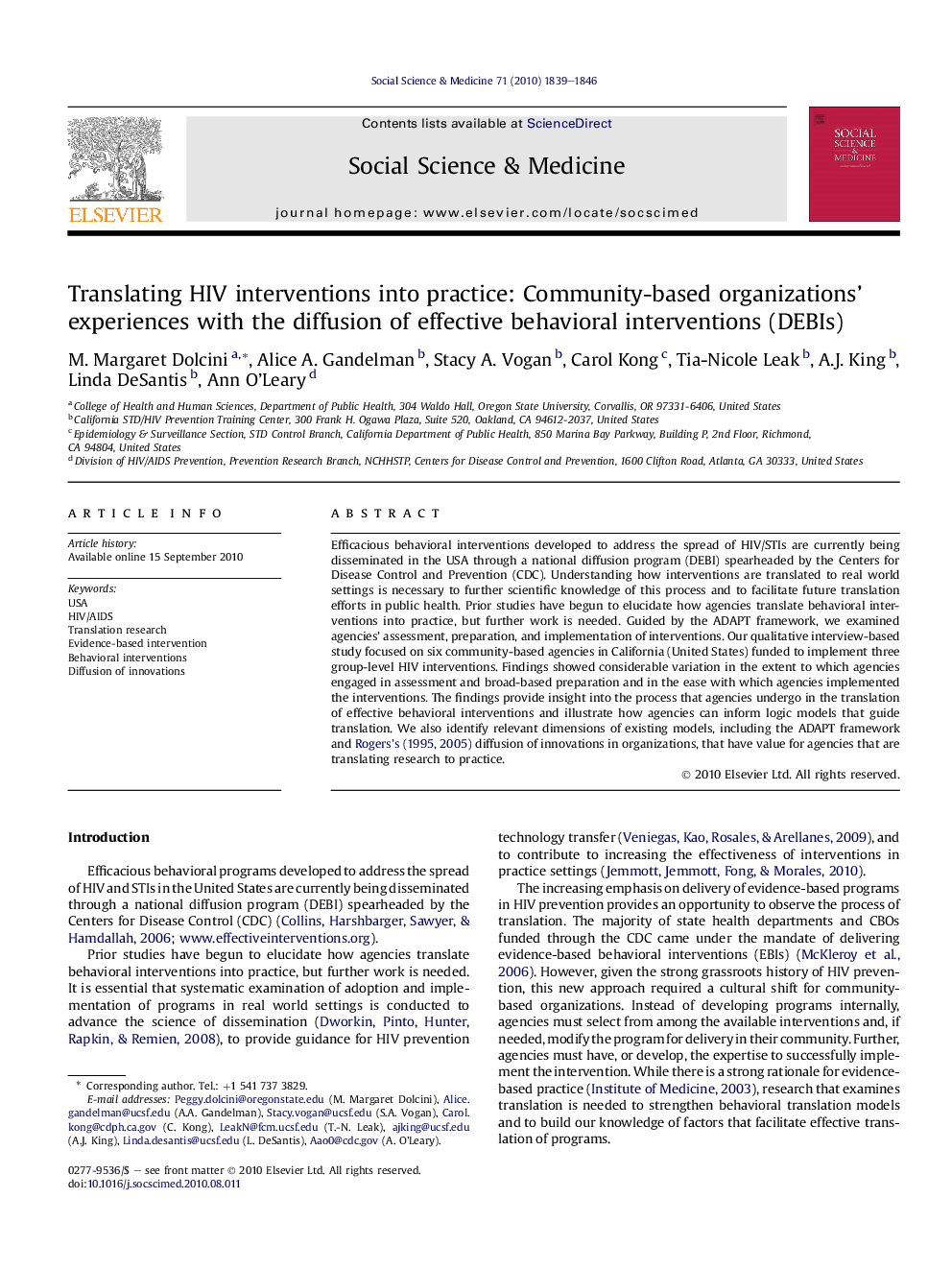| Article ID | Journal | Published Year | Pages | File Type |
|---|---|---|---|---|
| 10471815 | Social Science & Medicine | 2010 | 8 Pages |
Abstract
Efficacious behavioral interventions developed to address the spread of HIV/STIs are currently being disseminated in the USA through a national diffusion program (DEBI) spearheaded by the Centers for Disease Control and Prevention (CDC). Understanding how interventions are translated to real world settings is necessary to further scientific knowledge of this process and to facilitate future translation efforts in public health. Prior studies have begun to elucidate how agencies translate behavioral interventions into practice, but further work is needed. Guided by the ADAPT framework, we examined agencies' assessment, preparation, and implementation of interventions. Our qualitative interview-based study focused on six community-based agencies in California (United States) funded to implement three group-level HIV interventions. Findings showed considerable variation in the extent to which agencies engaged in assessment and broad-based preparation and in the ease with which agencies implemented the interventions. The findings provide insight into the process that agencies undergo in the translation of effective behavioral interventions and illustrate how agencies can inform logic models that guide translation. We also identify relevant dimensions of existing models, including the ADAPT framework and Rogers, 1995, Rogers, 2005 diffusion of innovations in organizations, that have value for agencies that are translating research to practice.
Keywords
Related Topics
Health Sciences
Medicine and Dentistry
Public Health and Health Policy
Authors
M. Margaret Dolcini, Alice A. Gandelman, Stacy A. Vogan, Carol Kong, Tia-Nicole Leak, A.J. King, Linda DeSantis, Ann O'Leary,
